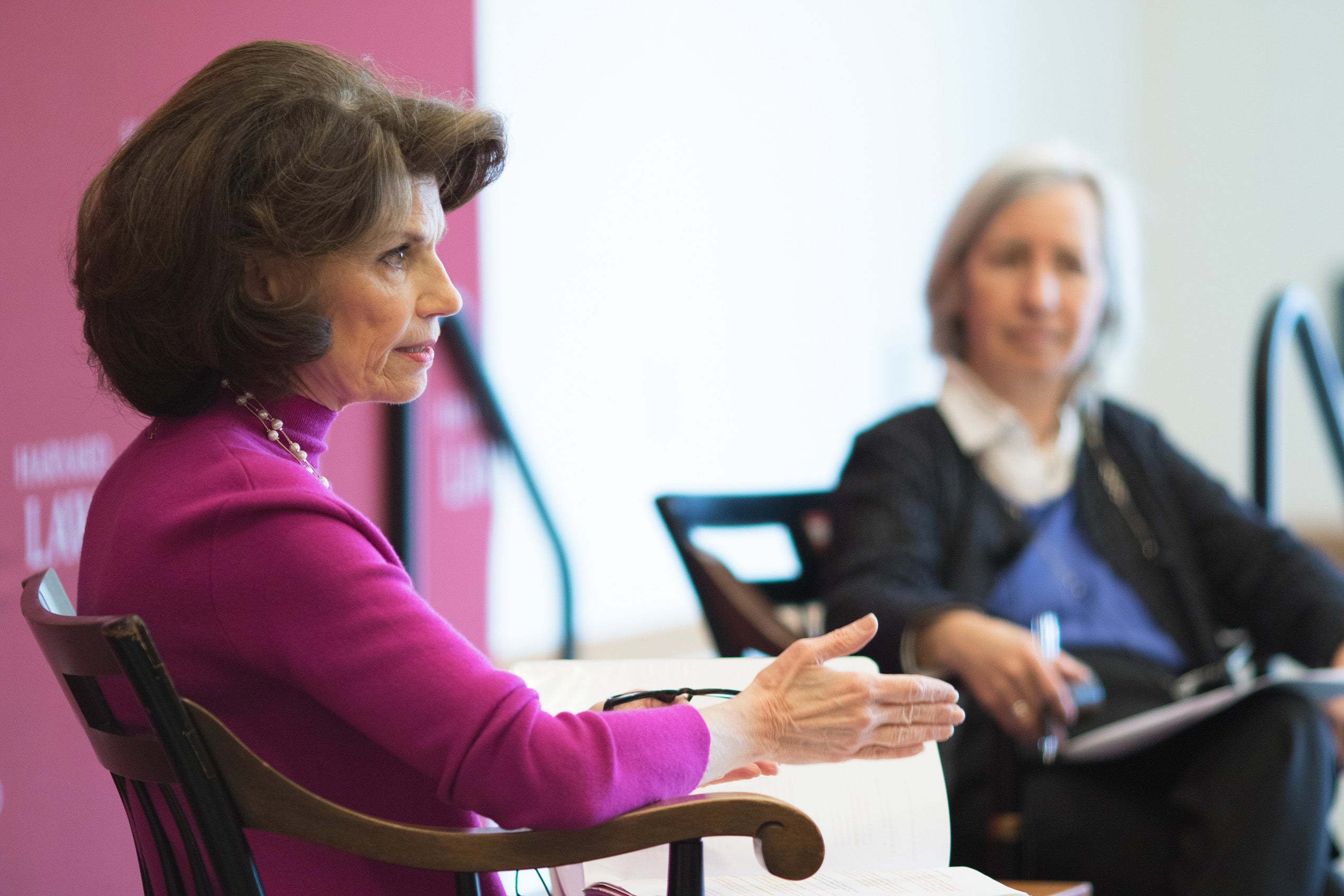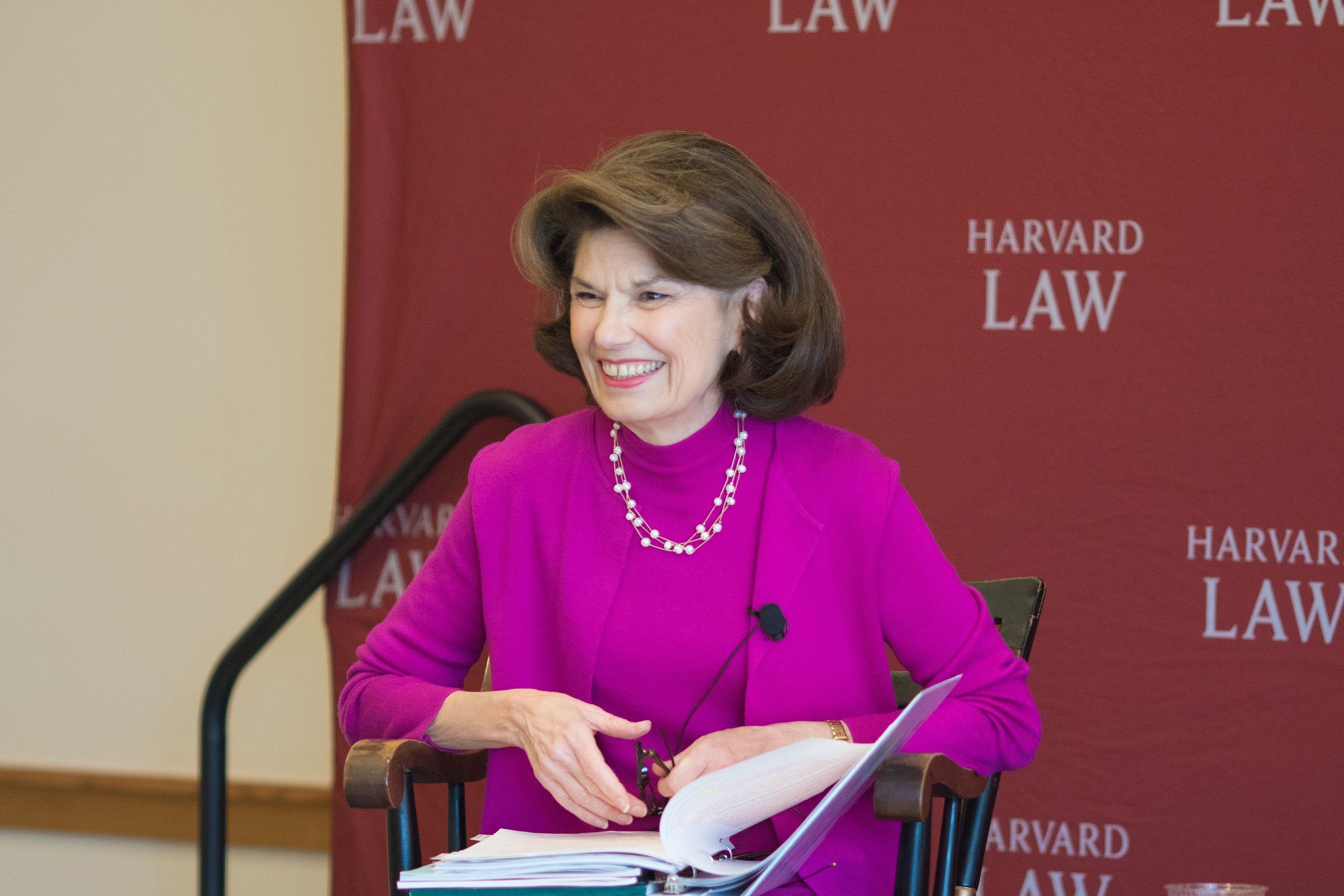One month after Reena Raggi ’76 became U.S. attorney for the Eastern District of New York in 1986, the New York Times praised her as an “aggressive prosecutor” who could take control of the most complicated cases. Raggi went on to be a federal judge in that district and was then appointed to the U.S. Court of Appeals for the Second Circuit, and has now served 30 years on the federal bench. Her experiences were the focus of a Q&A with Dean Martha Minow at Harvard Law School on March 21.
In a wide-ranging discussion, the judge shared her memories of late ’70s HLS — when she said interaction with professors came less easily than at Harvard today; her time here was “more what I’d call the Paper Chase era.”
She also revealed what she believes makes for a successful litigator. “Litigation is all about persuasion: You have to convince a jury to do what you want. If the judge doesn’t see the point, the problem is that you didn’t make the judge see it. You have to get the story out of the witnesses, which isn’t always easy because witnesses get nervous. Finally, you have to be brutally honest about your own strengths and weaknesses. When I started trying cases I was a young woman, and I had to think about the impact of that. So what do you do? You walk into the courtroom super-organized and come across as extremely professional.”

Judge Raggi discussed several of the most notable cases she decided, including, United States v. Gazi Abu-Mezer (2000). The defendant was a domestic terrorist who nearly succeeded in planting pipe bombs on the New York subway, a few years before 9/11. He was only caught because someone in his building convinced the local police, who were skeptical at first, to search his apartment.
“He was a very challenging defendant, the only one I ever had who had motives other than acquittal,” said Raggi. “His trial was making a political statement, using the courtroom as theater. And the defense attorneys came up with a theory under which he would be acquitted. But he insisted on taking the stand himself, and admitting he had made the bombs, even saying that he meant to kill as many Jews as possible. You could see he had no interest in acquittal, and I gave him life imprisonment.”
When Dean Minow asked her to recall a more lighthearted moment on the bench, she referred to a criminal case where the defendant had pled guilty, which required a “litany” of follow up questions. Asked if he’d taken drugs within the past 24 hours, the defendant shot back “No, sweetheart” — a breach of protocol that caused one of his defenders to elbow him in the ribs. But Judge Raggi was unfazed: “When you’re looking at someone who can put you in the slammer for 20 years, there are worse things you can call them than sweetheart.”
